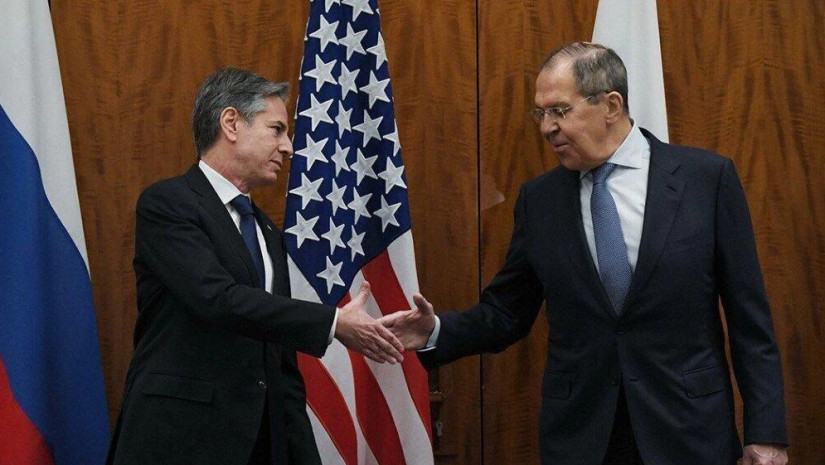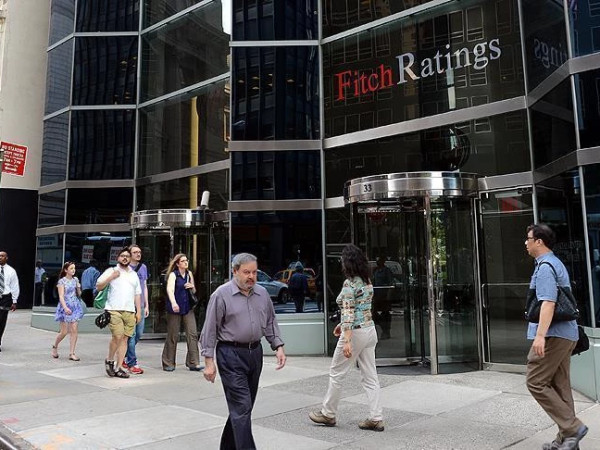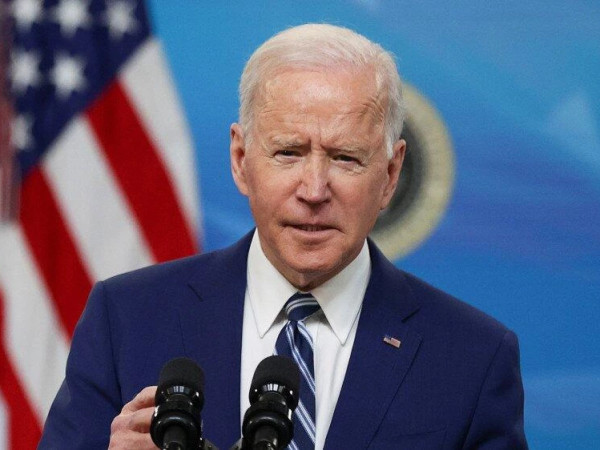The United States and Russia tried Friday to avert another devastating conflict in Europe, but the two powers’ top diplomats warned no breakthrough was imminent as fears rise that Moscow is planning to invade Ukraine.
Armed with seemingly intractable and diametrically opposed demands, U.S. Secretary of State Antony Blinken and Russian Foreign Minister Sergey Lavrov met in Geneva at what the American said was a “critical moment.” The talks are shaping up as a possible last-ditch effort at dialogue, AP (Associated Press) reports.
With an estimated 100,000 Russian troops massed near Ukraine, many fear Moscow is preparing an invasion although Russia denies that. The U.S. and its allies are scrambling to present a united front to prevent that or coordinate a tough response if they can’t.
After the talks, Lavrov called them “constructive and useful” and said that the U.S. agreed to provide written responses to Russian demands on Ukraine and NATO next week. That could at least delay any imminent aggression for a few days.
But he declined to characterize that step.
“I can’t say whether we are on the right path or not,” he told reporters. “We will see when we get the American responses.”
Ahead of the meeting, the two diplomats remained far apart.
“We don’t expect to resolve our differences here today. But I do hope and expect that we can test whether the path of diplomacy or dialogue remains open,” Blinken told Lavrov before their spoke privately. “This is a critical moment.”
Lavrov, meanwhile, said he did not “expect a breakthrough at these negotiations either. What we expect is concrete answers to our concrete proposals.”
Moscow has demanded that the NATO alliance promise that Ukraine — a former Soviet republic — will never be allowed to join. It also wants the allies to remove troops and military equipment from parts of eastern Europe. The U.S. and its NATO allies have flatly rejected those demands and say that Russian President Vladimir Putin knows they are nonstarters. They have said they’re open to less dramatic moves.
Washington and its allies have repeatedly promised “severe” consequences such as biting economic sanctions — though not military action — against Russia if an invasion goes ahead.
Blinken repeated that warning Friday. He said the U.S. and its allies were committed to diplomacy, but also committed “if that proves impossible, and Russia decides to pursue aggression against Ukraine, to a united, swift and severe response.”
But he said he also wanted to use the opportunity to share directly with Lavrov some “concrete ideas to address some of the concerns that you have raised, as well as the deep concerns that many of us have about Russia’s actions.”
Ukraine is already beset by conflict. Russia’s Putin seized control of Ukraine’s Crimea Peninsula in 2014 and backed a separatist insurgency in eastern Ukraine, part of a simmering but largely stalemated conflict with Ukrainian forces that has taken more than 14,000 lives. He faced limited international consequences for those moves, but the West says a new invasion would be different.
Ahead of his meeting with Lavrov, Blinken met Ukraine’s president in Kyiv and top diplomats from Britain, France and Germany in Berlin this week.
Adding to its repeated verbal warnings to Russia, the United States stepped up sanctions on Thursday. The U.S. Treasury Department slapped new measures on four Ukrainian officials. Blinken said the four were at the center of a Kremlin effort begun in 2020 to damage Ukraine’s ability to “independently function.”
The Russian Foreign Ministry reaffirmed its demands Friday that NATO not expand into Ukraine, that no alliance weapons be deployed near Russian borders and that alliance forces pull back from Central and Eastern Europe.
The State Department, meanwhile, put out three statements – two on Russian “disinformation,” including specifically on Ukraine, and another entitled “Taking Action to Expose and Disrupt Russia’s Destabilization Campaign in Ukraine.” The documents accused Russia and Putin of trying to reconstitute the former Soviet Union through intimidation and force.
The Russian foreign ministry mocked those statements, saying they must have been prepared by an Orwellian “Ministry of Truth,” and Lavrov caustically dismissed them in his remarks to Blinken, saying he hoped the State Department had also spent time drafting responses to Russia’s demands.
“I do hope that not everyone in the State Department was working on those materials and there were some who were working on the essence of our proposals and their substance,” he said.
The Russian Foreign Ministry on Friday rejected Western claims that Moscow was trying to rebuild the Soviet empire and carve out its zone of influence in eastern Europe, charging that it’s the West that thinks in categories of zones of influence.
Blinken took pains to stress U.S. unity with its allies in opposition to a possible Russian invasion, something that took an apparent hit earlier this week when U.S. President Joe Biden drew widespread criticism for saying retaliation for Russian aggression in Ukraine would depend on the details and that a “minor incursion” could prompt discord among Western allies.
On Thursday, Biden sought to clarify his comments by cautioning that any Russian troop movements across Ukraine’s border would constitute an invasion and that Moscow would “pay a heavy price” for such an action.
“I’ve been absolutely clear with President Putin,” Biden said. “He has no misunderstanding: Any, any assembled Russian units move across the Ukrainian border, that is an invasion.”
Russia has denied it is planning an invasion and instead accused the West on Thursday of plotting “provocations” in Ukraine, citing the delivery of weapons to the country by British military transport planes in recent days.
Source: Associated Press















